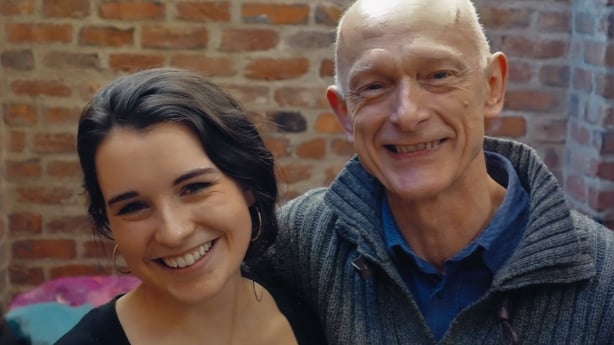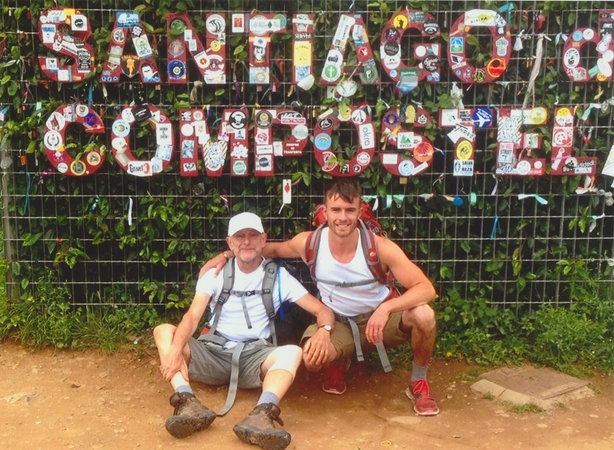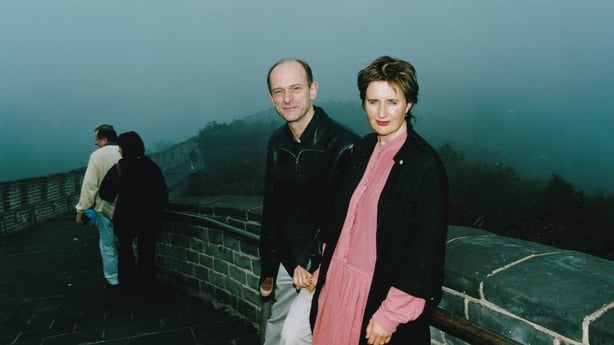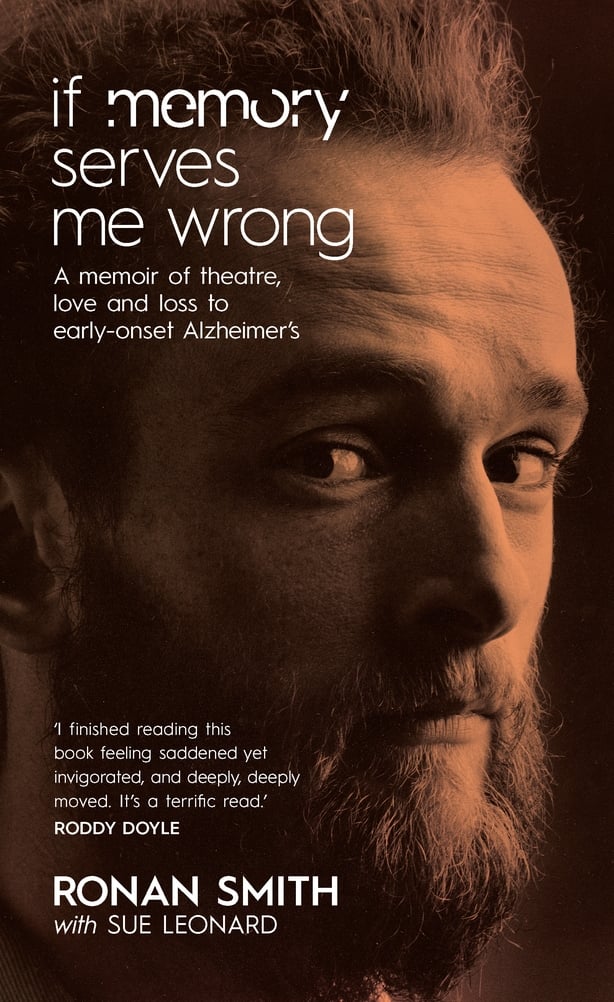We're delighted to present an extract from If Memory Serves Me Wrong, the new memoir from Ronan Smith, co-written with Sue Leonard and published by New Island books.
When Ronan Smith was in his twenties, his father, the theatre impresario Brendan Smith, developed obvious signs of early-onset Alzheimer's disease but steadfastly refused to acknowledge it. So in 2014, when Ronan himself was diagnosed with the same illness, he knew exactly what the coming years would hold. But, unlike his father, Ronan chose to face his future positively, turning from work towards family, improving his diet and advocating for the Alzheimer Society of Ireland.
Written in real time, If Memory Serves Me Wrong is a rare first-hand account of the experience of being both a family carer and of living with dementia. It is also a heartrending, sometimes harrowing and very often humorous memoir about the power of love in facing an uncertain future.
The new year of 2018 brought with it an unexpected problem. It was the end of January and I was driving home from town, slowly and carefully, in fairly heavy traffic. I drove up a winding road towards Blessington, and the next thing I knew I was waking from a strange dream to strangers who were peering in at me, asking if I was all right.
I squinted, trying hard to see, then slowly my vision cleared and my brain caught up with the fact that this was no dream – it was very real indeed. Still in my car, I was upside-down, in the ditch.
We need your consent to load this rte-player contentWe use rte-player to manage extra content that can set cookies on your device and collect data about your activity. Please review their details and accept them to load the content.Manage Preferences
Listen: Ronan's wife Miriam Brady talks to Ryan Tubridy
'Are you all right?' a man asked.
'I think so,' I said, still feeling a sense of unreality. ‘Can you move your fingers? Your toes?’
I tried. ‘Yes,’ I said. ‘All in working order.’
At that, the door opened, and I was helped out of my upside-down car.
‘What happened?’ I asked.
‘The car just left the road. It crossed over, hit the kerb at an awkward angle and flipped. Do you not remember any of that?’
I shook my head. Part of me was still wondering if this could be a dream. But as the minutes passed, and an ambulance arrived to cart me off to accident and emergency, I had to accept, rather ruefully, that this was all too real.

I was lucky. I hadn’t hit anyone, and the traffic around me had stopped immediately and safely. I spent several hours in accident and emergency; all my functions seemed intact. And I was questioned fully about all I could, and could not, remember.
‘It seems you had a blackout,’ said the doctor, jotting something down in a chart. ‘I’d estimate that you were unconscious for five or six minutes.’
That bothered me. Miriam and I talked over the signifi- cance of this as she drove me home. But, recovering, I suffered no residual problems, and we let the matter lie for a while. But in March, travelling on the LUAS tram into town, I felt woozy and faint. After sitting still for several minutes I tentatively car- ried on with my day, but the feeling travelled with me. It was like a fog between me and the world. Could this be linked to the blackout? I told Miriam of this new development.
‘Why don’t we contact Des O’Neill?’ she said, referring to one of Ireland’s leading gerontologists.
‘That’s a good idea.’ Des and I are friends, and our friendship goes back a long way. I’d met him at sixteen when the two of us were selected as part of a theatre group to go to Brussels to perform Wilde’s The Importance of Being Earnest, and we’d kept in touch over the years. I had told him about my diagnosis and he promised to do all he could for me. ‘Pick up the phone anytime,’ he’d said, and now we took him at his word. He has played such a pivotal role in my life with Alzheimer’s and is always there for me.

It was straight into Tallaght Hospital for me, where they ran various tests. Then I went to St James’s syncope clinic to discover if the problem was linked to a tendency to faint. It wasn’t. They ran a CT scan of my brain and, when that proved satisfactory, Des said that it might be my heart. He sent me to cardiologist David Moore, and I wore a loop monitor for a month or so which showed cardiac arrhyth- mia; now I have a pacemaker.
‘It’s probably the drugs,’ Des told me when we discussed the cardiologist’s findings. ‘The suite of medicines you’ve been prescribed is known to disturb the heart rhythm in some patients.’
It’s not absolutely clear that it was my heart that caused the blackout, but it seemed expedient to keep off the roads from now on. This issue has never been resolved, so my driv- ing days are well and truly over.
As the year continued to play itself out, I was focusing on finding a gentler frame of mind, but suffered occasional dips into frustration. This was, I believe, unavoidable, as my functioning was slowly yet steadily deteriorating.

Miriam has shared in my descent from clarity every step of the way. Always in my corner, watching out for me, she observes and monitors the progression of the disease with extreme care. I see this; I see it registering in her eyes, but she rarely comments. Being sensitive, she springs into action in order to spare my blushes, and I’m grateful to her. I suspect that Miriam knows the score far better than I do. She observes, I struggle, and can no longer see the full picture because I can’t remember what that picture is.
And of course, life at home is not all harmony. We have clashes, and heated exchanges about domestic planning and tasks; but the underlying stress is worry for the future. How can you live well in the present when the future appears so challenging for Miriam, and for me? We have individual moments of being on edge, stressed and fretful.
Whenever life seems particularly difficult we take our- selves off for a weekend of pampering. This time we were away in Lough Rynn Castle in Leitrim, a treat that had been a gift from Hannah. As we sat in front of the fire enjoying our pre-dinner drinks, I told Miriam how low I was feeling about the Alzheimer’s. ‘It’s just relentlessly progressing,’ I said. ‘Like a runaway lorry with no brakes.’
Squeezing my hand she said that she understood how I felt. ‘But we’re here now,’ she said. ‘And now is restful. It’s relaxing. Nurturing. Let’s just take that for now. Deal?’
I smiled and, lifting my glass to hers, agreed, ‘Deal!’
And I did manage to relax into it all, knowing that once we got home again it would be back to fighting the good fight. Back to grieving.
Grief was a big factor: grief for the future we had believed was ours; for the present; and the things we have already lost. Miriam tries for my sake to keep her sadness private, but on the rare times when it spills over and she weeps in my presence, I welcome her honesty. She shares my worst moments too.
This is an intimately shared journey – carer and patient yoked firmly together. We look out for each other, trying to do our very best.

If Memory Serves Me Wrong: A memoir of theatre, love and loss to early-onset Alzheimer's by Ronan Smith with Sue Leonard (published by New Island) is out now - find out more here.

